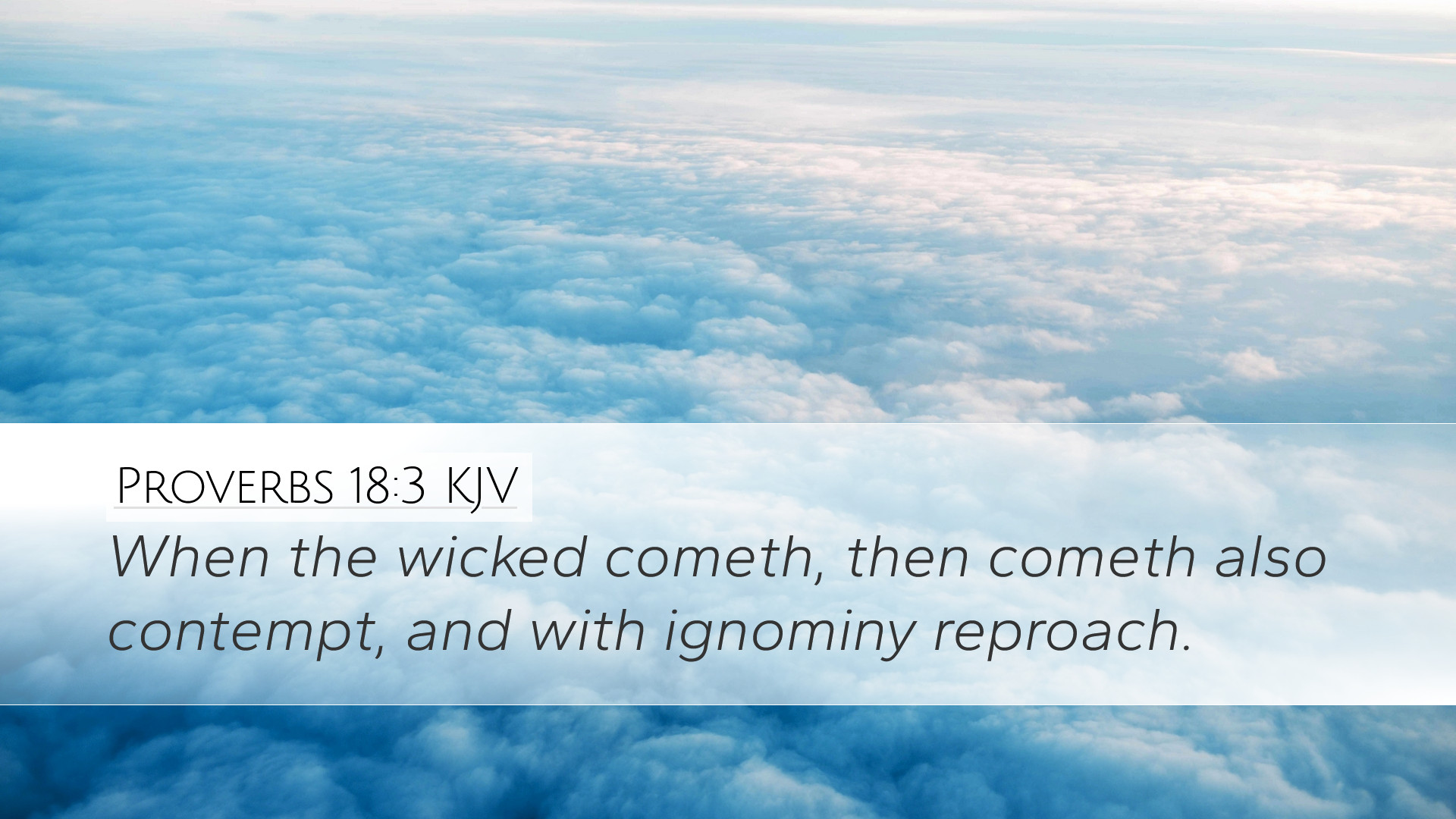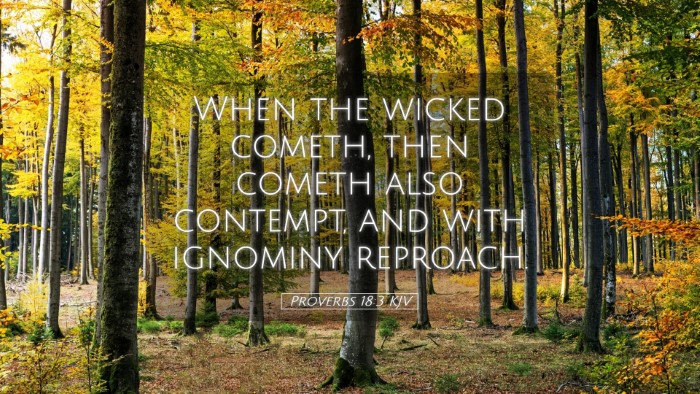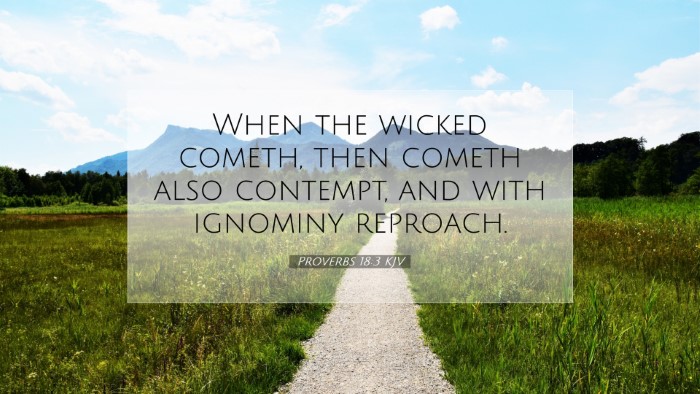Commentary on Proverbs 18:3
Proverbs 18:3 states, "When the wicked comes, contempt comes also; and with dishonor comes reproach." This verse speaks profoundly about the nature of wickedness and the inevitable consequences that accompany it. In this commentary, we shall explore insights from notable public domain commentaries, including those by Matthew Henry, Albert Barnes, and Adam Clarke.
Understanding Wickedness
The term "wicked" in biblical literature typically refers to individuals who deliberately defy God’s commandments, exhibiting behaviors that are morally reprehensible. Henry notes that wickedness introduces not just personal evil but also a social decay, where the very fabric of community is tainted by the actions of the wicked.
Contempt and Its Implications
When discussing "contempt," we recognize it as a deep disdain or scorn, which arises naturally in response to dishonorable behavior. According to Clarke, the contempt referenced is both social and divine; the wicked not only faces societal rejection but stands in judgment before God. This teaches that the actions of the wicked not only affect their own standing but also invoke a disdainful response from those who seek to uphold righteousness.
Dishonor and Reproach
Henry further elaborates on the idea of "dishonor" and "reproach." He suggests that dishonor is a synonym for disgrace, implying that those who engage in wicked acts do not merely fall into ruin but actively invite shame upon themselves. Reproach, then, becomes the natural outcome—their actions bear consequences that lead others to scorn them. This is salient knowledge for scholars and theologians, pointing to the fact that evil brings its own punishment.
The Nature of Divine Justice
Albert Barnes emphasizes that this verse illustrates the broader theological principle of divine justice. Those who engage in wickedness can expect that their actions will lead to suffering, both in their own lives and in the lives of those they influence. This principle aligns with the overarching themes of Proverbs, offering a corrective and cautionary guide for both individuals and communities.
Practical Applications for Life
- Awareness of Moral Consequences: This verse serves as a reminder for believers to be vigilant about their actions and the moral implications they carry. Reflecting on our choices is essential in fostering a life reflective of God’s standards.
- Understanding Relationships: Counselors and pastors can reflect on this verse in relation to interpersonal relationships, emphasizing how wickedness can breed distrust and contempt within communities.
- The Role of Community: Scholars might explore how society reacts to wickedness, advocating for communal responsibility in confronting and addressing these issues faithfully.
Reflections on the Wider Context of Wisdom Literature
Additionally, this verse fits within the larger discourse found in the Book of Proverbs, a collection deeply rooted in wisdom literature. Clarke suggests that wisdom is often juxtaposed against folly and wickedness, and understanding this contrast can greatly enhance our theological reflections. The wise person anticipates the results of their actions, whereas the wicked often act impulsively without regard for the repercussions.
Conclusion
In conclusion, Proverbs 18:3 stands as a potent reminder of the realities of wickedness and its repercussions. The insights garnered from public domain commentaries reflect the intertwined nature of morality, social dynamics, and divine justice. For pastors, students, theologians, and Bible scholars, this verse offers rich ground for exploration and practical application in both personal and communal contexts.


